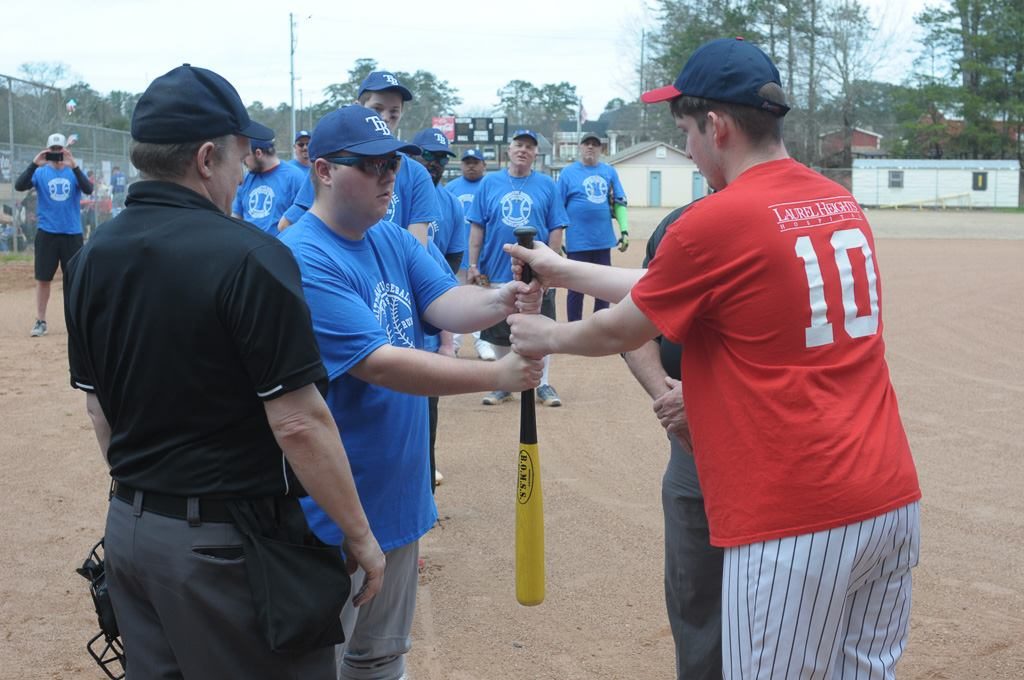A baseball organization for teens and adults with autism is coming to Philly
 May 30, 2019
Category: Featured, Medium, Purpose
May 30, 2019
Category: Featured, Medium, Purpose
Khristina Downing said the Alternative Baseball Organization believes in everyone getting an opportunity to play, including her 16-year-old son Gabe who has autism spectrum disorder.
Downing met Alternative Baseball Organization CEO Taylor Duncan through a friend when she lived in Dalton, Georgia. Duncan, 23, who was diagnosed with autism spectrum disorder when he was 4 years old, founded the organization in Powder Springs, Georgia in 2016.
The organization is a developmental baseball program for teens ages 15 and up and adults with autism spectrum disorder, and has 26 teams in 13 states. It started expanding to other locations last May and is in the process of establishing a club in Philadelphia.
Downing, who had relocated near Philadelphia with her son and husband Chad in March, will be the team’s main manager. She is currently recruiting players, volunteers, coaches and managers for their first practice on June 22.
She has coached T-ball and Special Olympics before, but this is her first time building a team from scratch — which she says has been a challenge. Still, she’s not giving up. “We’re just excited to get it going here,” she said, “and we hope we can get players to sign up.”
“I think this is a great place to bring the organization,” she added.
That sort of connection to place is important according to Alternative Baseball’s CEO.
“Every neighborhood, every city that we’re starting a new program in, they have different people from their community who step up to manage those teams,” Duncan said.
Growing up, Duncan said he was often excluded from youth sports until a baseball coach took him under his wing one year. The following year, however, a new coach cut Duncan from the team claiming he was an injury risk.
But Duncan still had a passion for the sport. He said there aren’t many resources or programs for people with autism spectrum disorder after they graduate high school, so he decided to start the organization to provide people with autism spectrum disorder an authentic baseball experience that follows Major League rules.

The Alternative Baseball Organization, a developmental baseball program for teens ages 15 and up and adults with autism spectrum disorder, is starting a club in Philadelphia. (Courtesy photo)
Joseph McCleery, Kinney Center for Autism Education and Support’s academic director, said children with autism spectrum disorder often experience a delay getting into sports due to social difficulties, parental concern or coaches not wanting them.
“A lot of these kids are not going to be accepted into existing programs or not be successful in traditional programs when they’re younger, in terms of being included and being able to participate,” McCleery said. “So this kind of program hits that need.”
McCleery added that there are benefits from this kind of program for adolescents and adults as well. “They’re basically going to be setting routines, physical activity, and health-related routines that they may keep for the rest of their lives,” he said.
Michele Parker-Smith’s 18-year-old son, Malcolm Washington, who was diagnosed with autism spectrum disorder when he was 5 years old, plays for one of the organization’s teams in Atlanta. Parker-Smith said her son’s language skills and social interactions have really improved through his involvement.
“[Those with] special needs are not always included in mainstream activity,” she said. “We love the mission and the premise with the Alternative Baseball Organization. It really was Taylor [Duncan’s] desire to include individuals, regardless of their disabilities, into mainstream activities.”
For her, the team has also become a connection to the community members who come and watch the games and a support system among parents with children on the team.
“I’m so proud of Taylor and his mom for starting this team and really for going all over with this team and really starting it in other states,” she said. “Because I think it’s so helpful, and I think it is definitely needed for individuals with disabilities of any kind to feel more included.”
Trending News









